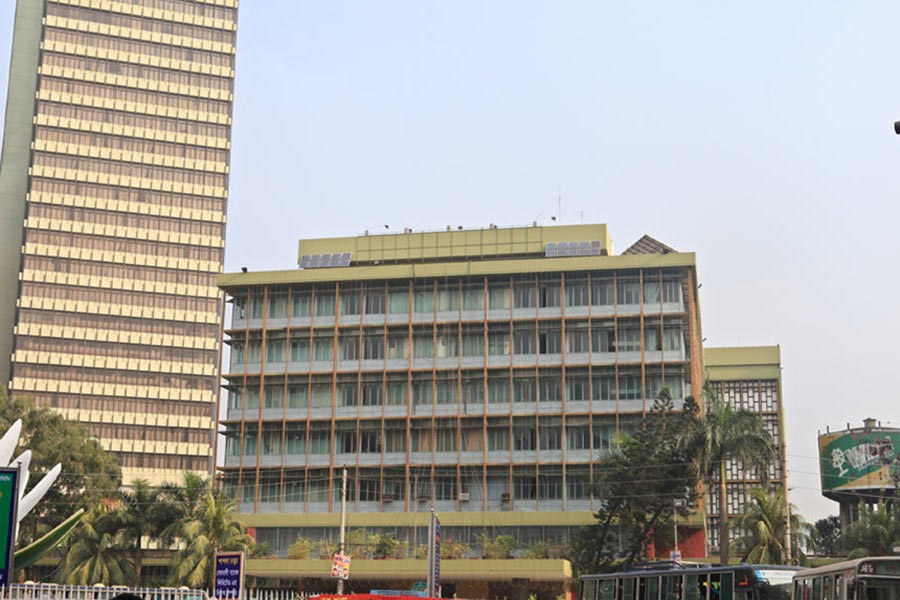Declining asset quality of Bangladesh's banks could weaken their lending capability, says Moody's as it already finds them in "tighter liquidity conditions".
However, the US-based global credit-rating agency predicts that their overall operations may stay stable over the next 12-18 months because of a healthy operating environment, despite legacy asset-quality issues and tighter liquidity conditions.
On the positive side of the banking environment, it also pointed out that the banks' credit growth registered a healthy 16 per cent in the 12 months to 30 March 2017.
Term loans made to industries are a key driver of overall loan growth, in line with the robust underlying investment cycle.
Loans to the construction and infrastructure sectors, in particular, have been strong, and the Moody's expects this situation to continue.
"We expect that the banks will achieve loan growth in the mid-teens in 2018," Srikanth Vadlamani, Moody's Vice President and Senior Credit Officer, said in its latest analysis.
Retail loan growth has also been picking up, although from a low base, according to the analysis.
Moody's, however, said retail loan growth should strengthen, as more banks start focusing on this segment.
On the flipside, the Moody's said the banks, in particular state-owned ones, will demonstrate weak asset quality over the next 12-18 months.
The gross nonperforming loan (NPL) ratio for Bangladesh's banking system was weak at 10.1 per cent as of 30 June 2017, a slight deterioration from the prior year, it added.
The NPLs for private-sector banks remain elevated at around 5.5 per cent-6.0 per cent of gross loans. And, state-owned banks continue to suffer from acute asset-quality issues, with a gross NPL ratio of 26.8 per cent at the end of June 2017.
The Moody's also explained that the concentration of loans to conglomerates remained high, and represented a key structural risk to the banks' credit profiles.
As for capitalisation, the Moody's said the banks' capital levels should deteriorate mildly, due to faster loan growth and reduced profitability.
And, while the private-sector banks demonstrate adequate capitalisation, state-owned banks' capital levels remain very weak, with a capital- adequacy ratio of 7.0 per cent as of 30 June 2017.
On funding and liquidity, the global rating agency said the banks are increasingly reliant on market funds, with loan-to-deposit ratios rising for the private banks, because loan growth has consistently outpaced deposit growth over the past three years.
On profitability and efficiency the analysis said credit costs pose a drag on profitability.
In particular, the returns on average assets for private-sector banks will stabilize at low levels, reflecting elevated credit costs, which climbed to 30-35 per cent of pre-provision income following tightened rescheduling rules in 2012.
The Moody's foresees that credit costs will stay elevated over the next 12-18 months, as some rescheduled loans become nonperforming, thereby necessitating a corresponding amount of provisioning.
"Net interest margin and core profitability will remain stable for private sector banks, with stronger loan demand to support loan yields and net interest income," it noted.
On the operating environment for the banks, the Moody's said Bangladesh's economic growth is high and stable, underpinned by robust private investment and consumption growth.
Private investment growth averaged 16 per cent between 2014 and 2016. Private consumption growth was also healthy, averaging 11 per cent over the same period, driven by rising income levels.
"Asset quality will remain a credit weakness for the banks, in particular for state-owned banks, over the next 12-18 months, primarily driven by corporate loan delinquencies," said Komaresan Subramanian, a Moody's Associate Analyst.
"And, while liquidity conditions are comfortable, a rising loan-to-deposit trend poses a risk to the private sector banks' liquidity profiles," the Moody's analyst explained.


